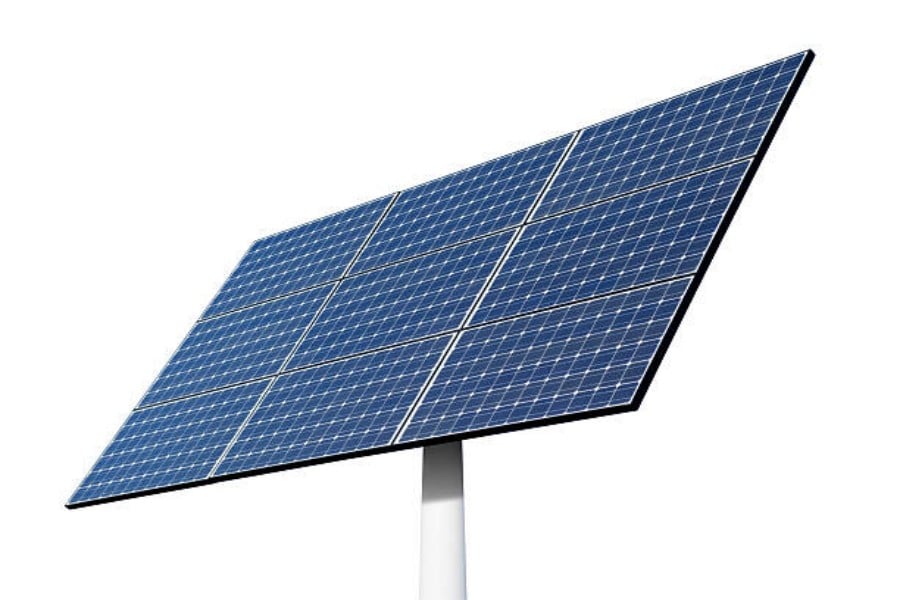Introduction
Solar panels have become increasingly popular over the years for their ability to generate energy from the sun, reduce carbon footprint and energy costs. However, not all solar panels are created equal. In recent years, 12 volt flexible solar panels have emerged as a convenient and versatile option for powering a wide range of devices, vehicles, and even houses. In this article, we will explore everything you need to know about 12 volt flexible solar panels, including their benefits, types, features, and applications.
What Are 12 Volt Flexible Solar Panels?
12 volt flexible solar panels are thin, lightweight, and bendable solar panels that can be easily installed on surfaces with curves, such as boats, RVs, cars, vans, tents, backpacks, and more. They are made of advanced materials such as amorphous silicon, CIGS, or perovskite, which allows them to convert sunlight into electricity with high efficiency and performance. The 12 volt rating refers to the output voltage of the panels, which is suitable for powering 12-volt batteries, USB devices, and low-power appliances.
Benefits of 12 Volt Flexible Solar Panels
12 volt flexible solar panels offer several unique benefits compared to traditional solar panels, including:
- Flexibility: they can be bent up to 30 degrees, making them adaptable to curves and irregular surfaces.
- Portability: they are lightweight and compact, making them easy to transport and install on the go.
- Durability: they are resistant to impacts, water, and weather conditions, making them suitable for outdoor and marine environments.
- Affordability: they are relatively inexpensive compared to rigid solar panels, making them accessible to a wider range of users.
- Eco-friendliness: they generate clean and renewable energy from the sun, reducing reliance on fossil fuels and greenhouse gas emissions.
Types of 12 Volt Flexible Solar Panels
There are several types of 12 volt flexible solar panels available, each with its own unique features and specifications:
- Amorphous silicon: these panels are made of a non-crystalline form of silicon that can be deposited on a flexible substrate such as metal, plastic, or glass. They have low efficiency but perform well in low light conditions.
- CIGS: these panels are made of copper-indium-gallium-selenide, a compound with high absorption and efficiency. They can be made on flexible substrates and have a longer lifespan than amorphous silicon panels.
- Perovskite: these panels are made of a material called perovskite, which has high efficiency and potential for low-cost production. They are still in the experimental phase but show promise for future applications.
Features of 12 Volt Flexible Solar Panels
When choosing a 12 volt flexible solar panel, there are several features to consider:
- Wattage: this refers to the output power of the panel, and can range from a few watts to several hundred watts.
- Size: this refers to the physical dimensions of the panel, which can vary from small and compact to large and bulky.
- Connectivity: this refers to how the panel can be connected to other devices, such as through a battery charge controller, USB port, or DC outlet.
- Efficiency: this refers to how well the panel can convert sunlight into electricity, and can affect the charging time and performance of the device.
- Weight: this refers to the mass of the panel, which can affect its portability and ease of installation.
Applications of 12 Volt Flexible Solar Panels
12 volt flexible solar panels can be used in a wide range of applications, including:
- Off-grid power: they can be used to power off-grid cabins, boats, RVs, and remote locations where traditional power sources are not available.
- Emergency backup: they can be used as a backup power source for critical appliances during power outages or natural disasters.
- Portable power: they can be used to power portable devices such as phones, tablets, cameras, and lights while camping, hiking, or traveling.
- Military and aerospace: they can be used in military and aerospace applications where weight, flexibility, and durability are critical.
- Education: they can be used in educational settings to teach students about renewable energy and sustainability.
Installation and Maintenance of 12 Volt Flexible Solar Panels
Installing and maintaining 12 volt flexible solar panels is relatively easy, but there are some tips to keep in mind:
- Choose a flat and clean surface to install the panel, such as a roof, deck, or wall.
- Use a strong adhesive or mounting hardware to attach the panel to the surface, such as screws, bolts, or zip ties.
- Position the panel facing the sun with no shade or obstructions, such as trees, buildings, or other objects.
- Clean the panel regularly with water and a soft cloth to remove dirt, dust, and debris that can reduce its performance.
- Check the connections and cables periodically to ensure that they are secure and not damaged.
Conclusion
12 volt flexible solar panels have become a popular and practical solution for generating clean and renewable energy in a variety of settings. They offer unique advantages such as flexibility, portability, durability, affordability, and eco-friendliness, making them an ideal choice for off-grid power, emergency backup, portable power, military and aerospace, and education. To choose the right 12 volt flexible solar panel, consider factors such as wattage, size, connectivity, efficiency, and weight, and follow the installation and maintenance tips for optimal performance and longevity.

